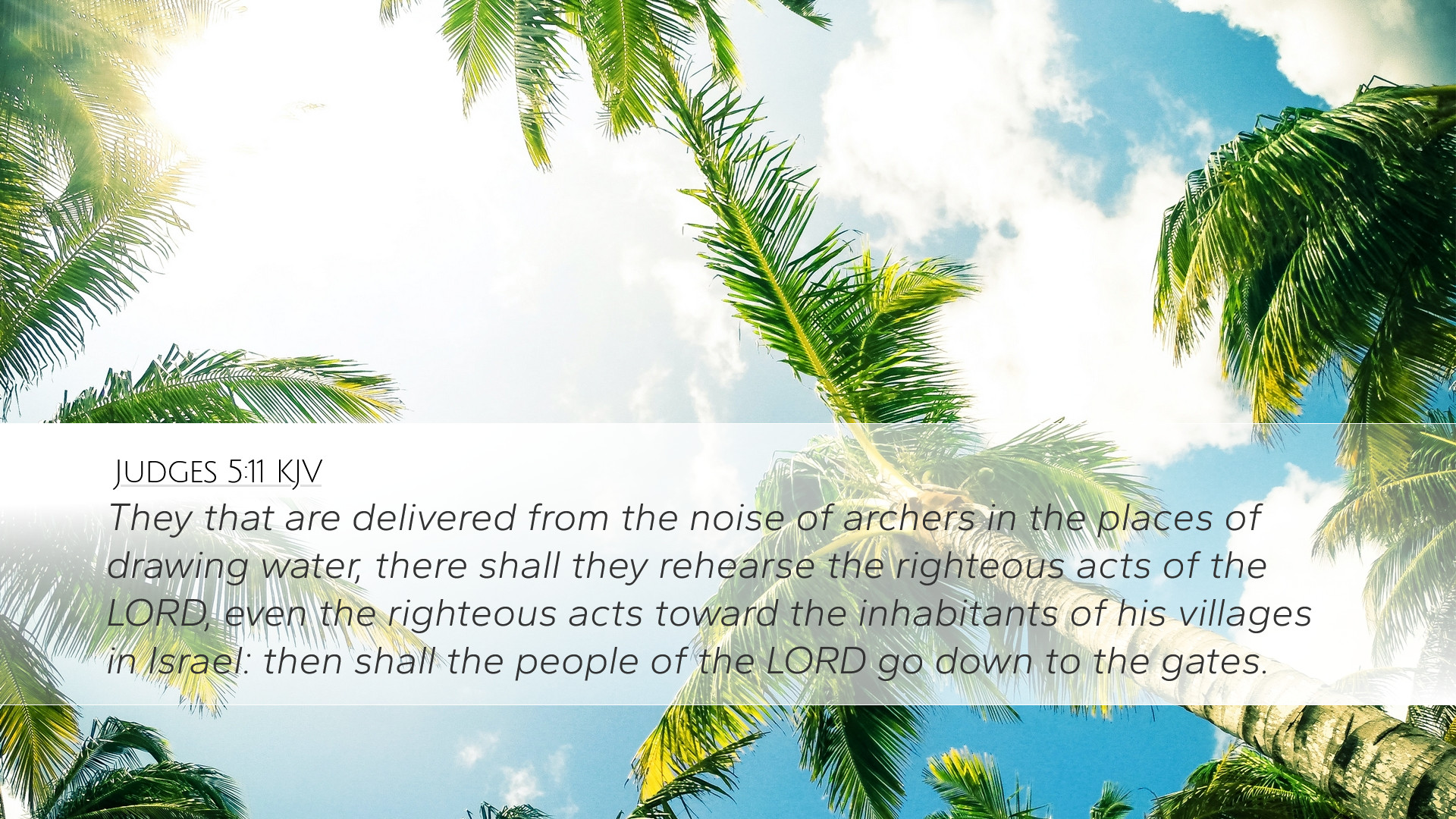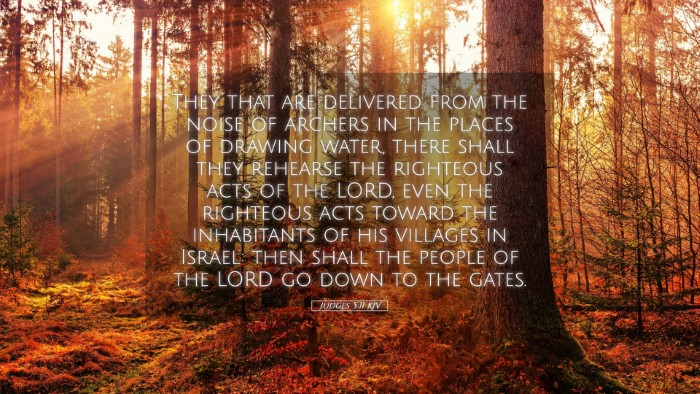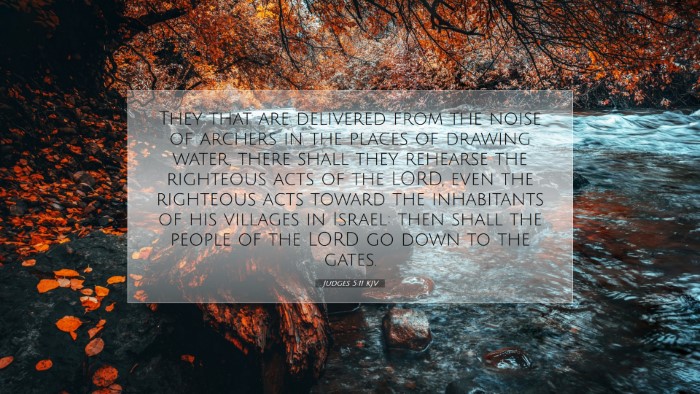Commentary on Judges 5:11
Judges 5:11 states: "They that are delivered from the noise of archers in the places of drawing water, there shall they rehearse the righteous acts of the Lord, even the righteous acts toward the inhabitants of his villages in Israel: then shall the people of the Lord go down to the gates."
This verse is part of the Song of Deborah, which celebrates the victory of Israel over its enemies. The imagery used in this passage reflects both the struggle and the subsequent praise that arises from God's deliverance.
Contextual Background
The context of Judges 5 is critical to understanding the import of verse 11. This chapter narrates the song sung by Deborah and Barak after their triumph over Sisera and the Canaanites. It serves both as a historical account and as a liturgical celebration of God’s justice and intervening power.
Insights from Commentaries
Matthew Henry’s Commentary
Matthew Henry notes that the reference to "the noise of archers" signifies the overwhelming threat faced by Israel. The drawing of water, a common task, represents a place of vulnerability. However, it is precisely here—where fear would normally reign—that the people, having been delivered, find a grounds for celebration and proclamation of God’s acts.
- Deliverance as a Theme: Henry emphasizes that God's deliverance is central to the narrative, and it is out of the recognition of this deliverance that worship arises.
- The Righteous Acts of the Lord: He elaborates on the "righteous acts" as not merely historical events but as interactions that showcase God's integrity and faithfulness to His covenant people.
- Importance of Rehearsal: The idea of "rehearsing" signifies not just remembering but actively recounting God’s faithfulness to encourage and strengthen community faith.
Albert Barnes’ Notes
Albert Barnes reflects on the phrase "places of drawing water" as metaphorical for the mundane aspects of life where God’s glory can penetrate deeply. He points out that the deliverance from fear—symbolized by "the noise of archers"—allows the people to shift their focus from survival to praise and remembrance.
- Contrasts of Fear and Faith: Barnes highlights the transition from fear to faith as a pivotal moment for the Israelites, showcasing how deliverance transforms a state of oppression into one of joyous proclamation.
- Community and Collective Memory: The gathering and sharing of God's acts serve to fortify the community—an essential practice for sustaining faith in subsequent generations.
Adam Clarke’s Commentary
Adam Clarke offers a detailed analysis of geographical and cultural implications embedded in this verse. He discusses the significance of “the gates,” which served as places of judgment and community gathering, emphasizing the collective identity of Israel as they celebrate God's deliverance.
- Significance of the Gates: Clarke posits that the gates symbolize not only a physical place but also a spiritual and communal hub for the Israelites, reinforcing their identity and shared history.
- Recognition of God’s Sovereignty: He underlines that the remembering of God's acts highlights His sovereignty and involvement in the lives of His people, which should prompt both worship and a commitment to covenant faithfulness.
Theological Implications
Theologically, Judges 5:11 challenges believers to recognize the places in their lives where they have experienced God's deliverance. It calls for a communal act of remembrance and praise that binds the community together in shared thanksgiving. The act of "rehearsing" is not just an echo of past victories; it serves as an exhortation to confront future challenges with faith rooted in the knowledge of God’s past faithfulness.
Application for Pastors and Leaders
Pastors and church leaders can draw lessons from this verse regarding the importance of congregational worship centered on testimonies of God’s faithfulness. This communal act of remembrance can serve as an anchor for faith, encouraging members to share their experiences of God’s grace and deliverance.
Encouragement for Students and Scholars
For students and scholars, engaging with this passage encourages a deeper investigation into the role of memory in spiritual practice. Understanding the cultural practices of Israel in the context of worship can provide valuable insights into how communities today can foster a similar spirit of remembrance and celebration of God's righteous acts.
Conclusion
Judges 5:11 serves as a rich text for exploring themes of deliverance, communal memory, and the righteousness of God. The insights drawn from classic commentaries provide a multifaceted view of how believers, past and present, can find strength in recalling and celebrating the mighty acts of God in their lives and communities.


